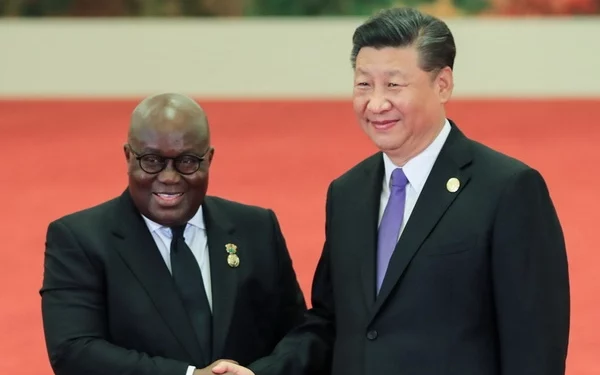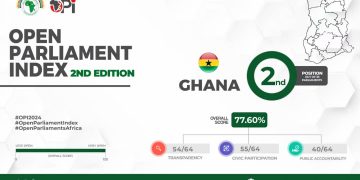Ghana faces potential mineral revenue losses over default on Chinese loans
Ghana, a country once touted as an economic success story in West Africa, now finds itself mired in a debt crisis of unprecedented magnitude. The International Monetary Fund (IMF) has recently revealed alarming details about how Ghana’s reliance on Chinese loans has exposed the nation to the possibility of losing crucial parts of its mineral resource revenue, as well as revenues generated from electricity sales. With a debt portfolio surpassing $30 billion, the West African nation stands at a critical juncture, navigating the repercussions of its borrowing spree over the past two decades.
Chinese Loans: A Double-Edged Sword
For Ghana, Chinese loans have long been viewed as a reliable funding source for major infrastructure projects since the turn of the millennium. Over the past 20 years, the Ghanaian government has accumulated close to $5 billion from at least 41 Chinese loans, a staggering figure that underscores the nation’s dependency on this bilateral relationship. However, what initially appeared as an attractive financial lifeline has now transformed into a debt trap for Ghana, plunging the country into its most severe economic crisis in a generation.
Collateralization: Unveiling Hidden Risks
One of the most disconcerting aspects of Ghana’s debt burden lies in the collateralization of loans received from China. This practice means that in the unfortunate event of Ghana defaulting on its debt obligations, China retains the right to seize proceeds from Ghana’s prized resources, including oil, cocoa, bauxite, and even revenue generated from electricity sales, to settle the debt. As of the end of 2022, Ghana owed China a substantial $1.9 billion, out of which $619 million constituted collateralized loans. The IMF has raised concerns about the potential ramifications of such agreements, as they place significant portions of Ghana’s economic backbone at risk.
China: A Dominant Force in Debt Negotiations
Within the realm of debt negotiations in the developing world, China has emerged as the paramount player at the negotiation table. As the largest bilateral lender globally, China’s lending policies and renegotiation practices, however, remain shrouded in opacity. This lack of transparency has stoked apprehensions among economists and policymakers alike, as it hampers efforts to fully comprehend the implications of China’s financial interventions. According to the World Bank, an astonishing 40% of the $35 billion in debt-service payments faced by the planet’s poorest countries in 2022 was owed to China alone, underscoring the country’s substantial influence.
Ghana’s Precarious Debt Position
Delving into Ghana’s debt dynamics, it becomes evident that the country has contracted at least eight collateralized loans from China, employing various mineral resources as security against default. These resources include cocoa, bauxite, and oil, which constitute vital pillars of Ghana’s economy. By encumbering these resources, Ghana sought to mitigate the risk of default, albeit at the cost of surrendering a degree of control over its national assets. With the IMF highlighting that Ghana’s collateralized debt at the end of 2022 was exclusively held by China, concerns over the country’s financial sovereignty have come to the fore.
IMF’s Call for Caution: In light of Ghana’s debt predicament, the IMF has stressed the need to prevent statutory funds from collateralizing revenue streams and issuing further debt. The aim is to protect essential government funds designated for specific purposes, safeguarding them from potential encumbrance. Additionally, the IMF has requested that the Ghanaian government provide corresponding loans or derivatives for all assets used as collateral, ensuring transparency and mitigating risks associated with loans.








